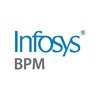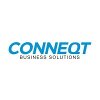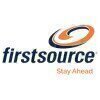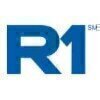
i
WNS
Filter interviews by
WNS Interview Questions and Answers
324 Interview questions
PO invoices are tied to purchase orders, while non-PO invoices are not linked to any purchase order.
PO invoices require a purchase order number for processing.
Non-PO invoices do not reference a purchase order and are often used for services.
Example of PO invoice: Invoice for office supplies ordered via a purchase order.
Example of non-PO invoice: Invoice for consulting services without a prior purchase order.
Responsive web design ensures that a website looks good on all devices by adapting its layout and content.
Use flexible grid layouts that adjust based on screen size. Example: CSS Grid or Flexbox.
Implement media queries to apply different styles for different screen sizes. Example: @media (max-width: 600px) { ... }
Utilize responsive images that scale with the viewport. Example: <img src='image.jpg' style='max-wi...
A simple HTML page design showcasing structure, elements, and styling for a web designer interview.
<!DOCTYPE html> declares the document type and version of HTML.
<html> is the root element of the HTML page.
<head> contains meta-information, title, and links to stylesheets.
<body> includes the content displayed on the page, like headings, paragraphs, and images.
<h1> to <h6> are use...
Microsoft Excel is a powerful spreadsheet application used for data analysis, visualization, and complex calculations.
Data Organization: Excel allows users to organize data in rows and columns, making it easy to manage large datasets.
Formulas and Functions: Users can perform calculations using built-in functions like SUM, AVERAGE, and VLOOKUP.
Data Visualization: Excel provides tools like charts and graphs to visua...
I utilized various metrics to ensure compliance with SLAs and KPIs, focusing on continuous improvement and team engagement.
Established clear KPIs such as response time, resolution time, and customer satisfaction scores.
Implemented a dashboard to track real-time performance against SLAs, allowing for quick adjustments.
Conducted regular training sessions to enhance team skills, leading to a 20% improvement in resolu...
The process involves coordinating operations to ensure efficiency and effectiveness in achieving organizational goals.
Understanding workflow: Analyzing how tasks move through the organization to identify bottlenecks.
Resource management: Ensuring that materials and personnel are allocated efficiently, like scheduling staff based on peak hours.
Data analysis: Using metrics to assess performance, such as tracking orde...
Dynamic professional with a strong background in management, dedicated to driving team success and achieving organizational goals.
Over 5 years of experience in team leadership, successfully managing projects that increased efficiency by 20%.
Skilled in conflict resolution, having mediated disputes that resulted in improved team collaboration.
Proficient in data analysis, using metrics to inform decision-making and e...
Fintech processes involve the integration of technology into financial services to enhance efficiency and customer experience.
Digital Payments: Services like PayPal and Venmo streamline transactions.
Lending Platforms: Companies like LendingClub use algorithms for quick loan approvals.
Robo-Advisors: Platforms like Betterment automate investment management.
Blockchain Technology: Cryptocurrencies like Bitcoin utilize...
A journal entry records financial transactions in accounting, detailing debits and credits for accurate financial reporting.
A journal entry typically includes the date of the transaction.
It consists of at least one debit and one credit entry.
Example: Purchasing office supplies for $500 would be recorded as: Debit Office Supplies $500, Credit Cash $500.
Each entry should have a brief description for clarity.
Journal ...
A credit note is a document issued by a seller to reduce the amount owed by a buyer, often due to returns or overbilling.
Used to correct billing errors, such as overcharges.
Issued when goods are returned, e.g., a customer returns defective merchandise.
Can be applied to future purchases or refunded to the buyer.
Serves as proof of a transaction adjustment for accounting purposes.
WNS Interview Experiences
1.1k interviews found
I appeared for an interview in Mar 2025, where I was asked the following questions.
- Q1. Components of Power Bi
- Ans.
Power BI consists of various components that facilitate data visualization, analysis, and sharing insights effectively.
Power BI Desktop: A Windows application for creating reports and dashboards.
Power BI Service: A cloud-based service for sharing and collaborating on reports.
Power BI Mobile: Mobile apps for accessing reports on smartphones and tablets.
Power Query: A data connection technology for importing and transfor...
- Q2. What is Data Modelling, how to model data in Power Bi
- Ans.
Data modeling in Power BI involves structuring data to create meaningful insights and relationships for effective reporting.
Star Schema: A common modeling technique where a central fact table is connected to multiple dimension tables, e.g., sales data linked to product and customer dimensions.
Relationships: Establishing relationships between tables using primary and foreign keys, such as linking a 'CustomerID' in a sal...
- Q3. Types of RLS in Power Bi
- Ans.
RLS in Power BI restricts data access based on user roles, enhancing security and data privacy.
Row-Level Security (RLS) can be implemented using DAX filters to restrict data access.
There are two types of RLS: Static RLS and Dynamic RLS.
Static RLS involves defining roles and permissions manually, e.g., a role for 'Sales Managers' to see only their region's data.
Dynamic RLS uses user attributes to filter data automatical...
- Q4. Create following measures using sample excel dataset Measures you need to create : QC% = QC Vol./Received Vol. Internal Error% = Internal Error/QC Vol. Internal Accuracy % = 1-SUM(Internal Error/QC Vol.) E...
- Ans.
Create a Power BI dashboard using measures and data from an Excel dataset to visualize QC and error metrics.
Measures Creation: Calculate QC%, Internal Error%, and External Error% using DAX formulas based on the provided dataset.
Dropdowns: Implement slicers for month and process to filter data dynamically on the dashboard.
Card Visuals: Use card visuals to display key metrics like QC%, Internal Error%, and Internal Accur...
Interview Preparation Tips
I appeared for an interview in Feb 2025.
(2 Questions)
- Q1. Resume shortlisting
- Q2. Asks for the self introduction.
(1 Question)
- Q1. Should type at the speed of 25 and the accuracy of 95 i guess..
(1 Question)
- Q1. You have to pass this test by gaining 40 marks minimum
You gonna have the assessment of 100 questions.
50 questions are logical reasoning and 50 questions are the personal test.
(1 Question)
- Q1. Introduce yourself confidently then the manager gonna ask a few questions from your resume. Then speak fluently in English confidently. From here, he gonna ask his questions. Whatever the question or topic...
I applied via Walk-in and was interviewed in Dec 2024. There were 3 interview rounds.
(1 Question)
- Q1. Self introduction and brief explanation about privious work
(2 Questions)
- Q1. About privious process and company
- Q2. What is saction, types of saction, what ia pep, meaning of reg flag, about cip, edd, saction country
- Ans.
Sactions are penalties imposed on individuals or entities for violating laws or regulations. PEP refers to politically exposed persons. Red flags indicate potential suspicious activity. CIP stands for customer identification program. EDD is enhanced due diligence.
Sanctions are penalties imposed on individuals or entities for violating laws or regulations
Types of sanctions include financial sanctions, trade sanctions, a...
Relationship, reasoning and apti
Interview Preparation Tips
I applied via Approached by Company and was interviewed in Dec 2024. There were 4 interview rounds.
I have given 4 rounds of WNS and was selected. They congratulated me for being selected and then asked me the documents. But later HR and Interviewer both stopped picking my call and then told me after 15-20 days we are putting you on hold and not proceeding with your application
(1 Question)
- Q1. Why you are taking less salary
- Ans.
Taking less salary to gain valuable experience and opportunities for growth.
Prioritizing career development over immediate financial gain
Opportunity to work with a reputable company or industry leader
Chance to learn new skills and expand professional network
Potential for advancement and higher salary in the future
(2 Questions)
- Q1. Why are you leaving your current job
- Ans.
Seeking new challenges and opportunities for growth
Looking for a new challenge to further develop my skills and knowledge
Interested in exploring new opportunities for career advancement
Seeking a more dynamic work environment with greater potential for growth
- Q2. NA
(1 Question)
- Q1. Why are you not satisfied by your current job
- Ans.
Lack of growth opportunities and challenging projects in current role.
Limited opportunities for advancement within the company
Not being challenged enough in daily tasks
Seeking a role with more responsibility and impact
Desire to work on more complex projects to further develop skills
(2 Questions)
- Q1. Self intro and family background
- Q2. Communication skills, any general topic
(1 Question)
- Q1. About Excel and typing speed
(1 Question)
- Q1. Explaining about company and CTC
I appeared for an interview in Jan 2025.
(5 Questions)
- Q1. Implemented Human Resources Dashboard ( Recruitment Events and Budget) and streamlined HRMS to ensure organizational compliance and efficiency.
- Q2. Health insurance
- Q3. General Insurance
- Q4. Customer insurance
- Q5. Cusomer support advisor (Non Voice)
Life insurance - this type of life insurance provide you with the opportunity to protect yourself and your family from personal risk exposures like repayment of debts after death proving for surviving spouse and children.
Health care insurance - healthcare include necessary medical aids, medical examinations, medical treatment, medical diagnoses, medical service that help individual achieve an optmal states of well-being any setting or stage in human life cycle.
I applied via Campus Placement and was interviewed in Oct 2024. There were 3 interview rounds.
Shortlisted students were divided in group of 19
Selected students from gd got the call for case study round
(5 Questions)
- Q1. Questions were based on the case study and guesstimates
- Q2. No. of aeroplane flying in the sky right now
- Ans.
It is impossible to accurately determine the exact number of airplanes flying in the sky at any given moment.
The number of airplanes in the sky constantly changes due to take-offs, landings, and flights being at different stages.
Factors such as time of day, weather conditions, and air traffic also affect the number of airplanes in the sky.
Air traffic control systems may provide estimates of the number of airplanes in a...
- Q3. How will u utilise 1 acre of land provided to u near ur college
- Ans.
I would utilize the 1 acre of land near my college for creating a sustainable community garden.
Establishing vegetable and fruit gardens to promote healthy eating among students
Setting up a composting area to reduce waste and enrich the soil
Creating a space for outdoor classes and events to enhance learning and community engagement
- Q4. How to start a starbuck franchisein ur town
- Ans.
To start a Starbucks franchise in your town, you need to follow a specific process set by the company.
Contact Starbucks corporate office to inquire about franchise opportunities
Meet the financial requirements and submit a franchise application
Find a suitable location for the Starbucks store
Complete the required training and adhere to Starbucks' standards and guidelines
- Q5. Sql extraction of the given table and data
- Ans.
Use SQL query to extract data from a given table
Use SELECT statement to retrieve data from the table
Specify the columns you want to retrieve after SELECT
Use FROM clause to specify the table name
Add conditions using WHERE clause if needed
Use ORDER BY clause to sort the results if necessary
Interview Preparation Tips
Skills evaluated in this interview
I appeared for an interview in Jan 2025.
(5 Questions)
- Q1. Where do you see yourself in 5year
- Ans.
In 5 years, I see myself as a seasoned Quality Analyst leading a team of professionals, implementing innovative quality assurance strategies.
Leading a team of QA professionals
Implementing innovative QA strategies
Continuing professional development in QA
Contributing to the overall success of the organization
- Q2. What is the salary expectation
- Ans.
My salary expectations are in line with industry standards for a Quality Analyst position.
Research industry standards for Quality Analyst salaries
Consider my level of experience and qualifications
Factor in the location and size of the company
Be open to negotiation based on benefits package
- Q3. What should we hire you
- Ans.
I have a strong attention to detail, excellent analytical skills, and a passion for ensuring high quality standards are met.
I have experience in conducting thorough quality assurance testing to identify issues and improve processes.
I am skilled in creating test plans, test cases, and test scripts to ensure comprehensive testing coverage.
I have a track record of collaborating with cross-functional teams to address quali...
- Q4. What is your strength and weakness
- Ans.
My strength is attention to detail and my weakness is being overly critical of my own work.
Strength: Attention to detail helps me catch errors and ensure high quality work.
Weakness: Being overly critical can sometimes slow down my progress and lead to self-doubt.
Strength: I consistently receive positive feedback on my thoroughness and accuracy in quality analysis.
Weakness: I am working on finding a balance between stri...
- Q5. Tell me about yourself
- Ans.
m self Am Ashwini Devanpally Am from Nizamabad Distich i have completed my graduation BSc (B.Z.c) in Nalanda degree women's collage in Nizamabad in the year of 2021 I don’t have personal experiences but I am great at helping with yours—whether that’s career advice, problem-solving, or just making your day a little easier. I can process tons of information quickly, and different topics ,of improve the more knowledge
Interview Preparation Tips
Maintenance Engineer Interview Questions & Answers
posted on 24 Nov 2024
I applied via Naukri.com
(3 Questions)
- Q1. UPS regarding Questions
- Q2. Types of maintenance and how to Face
- Ans.
Types of maintenance include preventive, predictive, corrective, and proactive maintenance. Each type requires different strategies to effectively manage and address maintenance issues.
Preventive maintenance involves regularly scheduled inspections and tasks to prevent breakdowns (e.g. changing air filters in HVAC systems)
Predictive maintenance uses data and analytics to predict when equipment will fail and schedule ma...
- Q3. Circuit Breaker,SLD diagram, Battery, Transformer,DG maintenance
(2 Questions)
- Q1. Introduction, Education, Educational Projects, Family Background,
- Q2. Salary expections
(5 Questions)
- Q1. Introduce yourself
- Ans.
I am a detail-oriented Operations Associate with experience in managing daily operations and optimizing processes.
Experienced in coordinating logistics for shipments and deliveries
Skilled in analyzing data to identify areas for improvement
Proficient in using project management tools such as Trello and Asana
- Q2. WHy you want to join WNS
- Ans.
I want to join WNS because of its reputation for providing excellent career growth opportunities and a dynamic work environment.
WNS has a strong reputation in the industry for providing excellent career growth opportunities.
I am impressed by the company's commitment to innovation and technology.
I believe that WNS's dynamic work environment will allow me to learn and grow professionally.
I am excited about the prospect o...
- Q3. Salary Expectation
- Q4. WHen will you join?
- Ans.
I am available to start immediately.
I can start as soon as possible.
I am ready to join within a week.
My availability to start is flexible.
I can start once the necessary paperwork is completed.
- Q5. If you join how much do you serve here ?
- Ans.
As an Operations Associate, I will serve full-time in this role.
I will be expected to work 40 hours per week, Monday through Friday.
I will be responsible for managing daily operations, coordinating logistics, and supporting the team.
I will participate in meetings, collaborate with colleagues, and contribute to the overall success of the organization.
Interview Preparation Tips
Top trending discussions






WNS Interview FAQs
The duration of WNS interview process can vary, but typically it takes about less than 2 weeks to complete.
Tell us how to improve this page.
WNS Interviews By Designations
- WNS Senior Associate Interview Questions
- WNS Associate Interview Questions
- WNS Operations Associate Interview Questions
- WNS Associate Lead Interview Questions
- WNS Senior Associate Operations Interview Questions
- WNS Assistant Manager Interview Questions
- WNS Back Office Executive Interview Questions
- WNS Analyst Interview Questions
- Show more
Interview Questions for Popular Designations
- Senior Associate Interview Questions
- Associate Interview Questions
- Operations Associate Interview Questions
- Associate Lead Interview Questions
- Senior Associate Operations Interview Questions
- Assistant Manager Interview Questions
- Back Office Executive Interview Questions
- Analyst Interview Questions
- Show more
Overall Interview Experience Rating
based on 890 interview experiences
Difficulty level
Duration
Interview Questions from Similar Companies
WNS Reviews and Ratings
based on 13.2k reviews
Rating in categories
|
Senior Associate
14.2k
salaries
| ₹2.5 L/yr - ₹7 L/yr |
|
Associate
5.7k
salaries
| ₹1.8 L/yr - ₹4.9 L/yr |
|
Associate Lead
3.5k
salaries
| ₹4.5 L/yr - ₹10 L/yr |
|
Assistant Manager
3.3k
salaries
| ₹6 L/yr - ₹13 L/yr |
|
Senior Associate Operations
3.1k
salaries
| ₹2.5 L/yr - ₹6.5 L/yr |

Teleperformance

Concentrix Corporation

iEnergizer

Infosys BPM
- Home >
- Interviews >
- WNS Interview Questions












